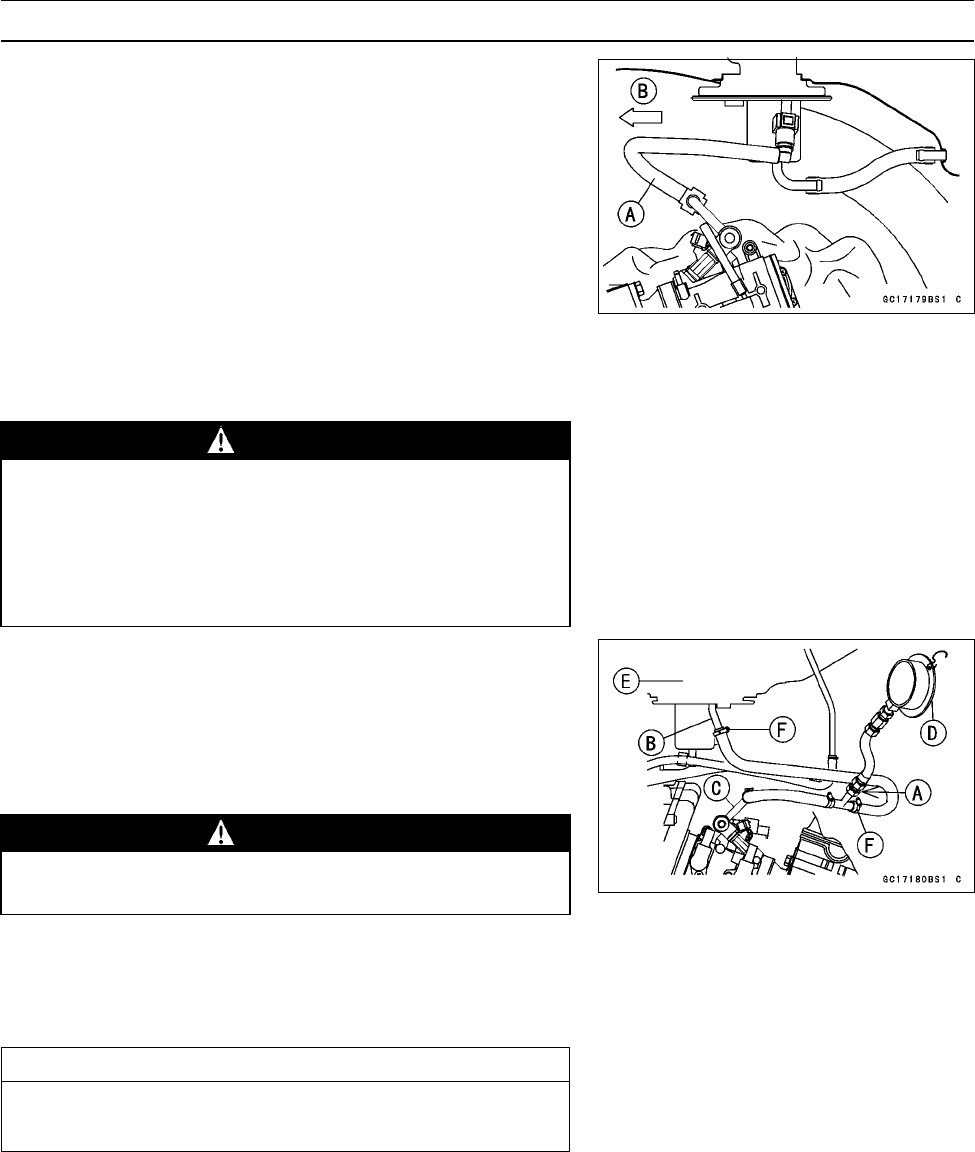
3-74 FUEL SYSTEM (DFI)
Fuel Line
Fuel Pressure Inspection
NOTE
○
This inspection can determine which trouble the DFI
system has, mechanical or electrical trouble.
○
It is preferable to measure the fuel pressure while run-
ning the motorcycle just when trouble occurred in order
to know symptom well.
○
Be sure the battery is fully charged.
•
Remove the f uel tank (see Fuel Tank Removal).
•
Be sure to place a piece of cloth around the pump outlet
pipe and the delivery pipe.
•
Remove the fuel pump outlet hose [A].
Front [B]
WARNING
Be prepared for f uel spillage; any spilled fuel must
be completely wiped up immediately.
When the fuel hose is disconnected, fuel spills out
from the hose and the pipe because of residual
pressure. Cover the hose connection with a piece
of clean cloth to prevent fuel spillage.
•
Install the fuel pressure gauge adapter [A] between the
fuel pump outlet pipe [B] and the delivery pipe [C].
•
Connect the pressure gauge [D] to the fuel pressure
gauge adapter (right side view).
Special Tools - Oil Pressure Gauge: 57001–125
Fuel Pressure Gauge Adapter: 57001–1417
WARNING
Do not try to start the engine with the fuel hoses
disconnected.
•
Temporarily, install the fuel tank [E]
Clamps [F]
•
Turn the ignition switch ON. The fuel pump will turn for 3
seconds, and then stop.
CAUTION
Do not drive the fuel pump without the fuel in the
fuel tank.
•
Measure the fuel pressure with the engine stopped.
Fuel Pressure
Right after Ignition SW ON, with pump running:
Standard: 310 kPa (3.2 kgf/cm², 44 psi)
After 3 seconds from Ignition SW ON, with pump
stopped:
Standard: 290 kPa (3.0 kgf/cm², 43 psi) (residual
fuel pressure)
The system should hold the residual
pressure about 30 seconds.


















